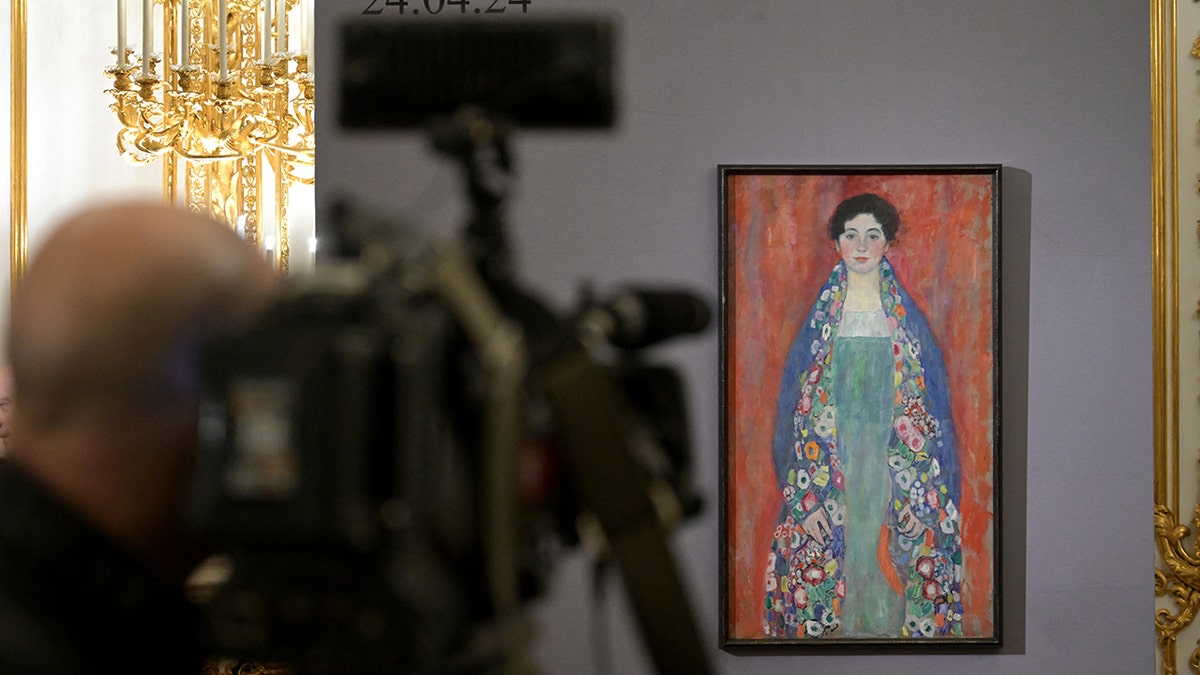Environmental activists in Vienna deface Klimt 'Death and Life' painting
Climate protesters dumped black liquid on the Gustav Klimt "Death and Life" painting displayed in a Vienna museum Tuesday.
A portrait of a young woman by Gustav Klimt that was long believed to be lost was sold at an auction in Vienna on Wednesday for 30 million euros ($32 million).
The Austrian modernist artist started work on the "Portrait of Fräulein Lieser" in 1917, the year before he died, and it is one of his last works. Bidding started at 28 million euros, and the sale price was at the lower end of an expected range of 30-50 million euros. The buyer wasn't identified.
The Im Kinsky auction house said that "a painting of such rarity, artistic significance, and value has not been available on the art market in Central Europe for decades."
The intensely colored painting was auctioned on behalf of the current owners, Austrian private citizens whose names weren't released, and the legal heirs of Adolf and Henriette Lieser, one of whom is believed to have commissioned the painting. It's not entirely clear which member of the Lieser family was the model.

Gustav Klimt's painting, "Portrait of Fräulein Lieser," has some unfinished parts because the artist started in 1917, but died of a stroke in 1918 and never completed it. (ROLAND SCHLAGER/APA/AFP via Getty Images)
Klimt left the painting, with small parts unfinished, in his studio when he died of a stroke in early 1918 and it was given to the family who had commissioned it, according to the auction house.
The Jewish family fled Austria after 1930 and lost most of their possessions.
It's unclear exactly what happened to the painting between 1925 and the 1960s, a period that includes the Nazi dictatorship. Austria was annexed by Nazi Germany in 1938.
The auction house says there is no evidence that the painting was confiscated then, but also no proof that it wasn't. It ended up with the current owners through three successive inheritances.
CLICK HERE TO GET THE FOX NEWS APP
In view of the uncertainty, the current owners and the Liesers' heirs drew up an agreement to go forward with the sale under the Washington Principles, which were drafted in 1998 to assist in resolving issues related to returning Nazi-confiscated art.
















































